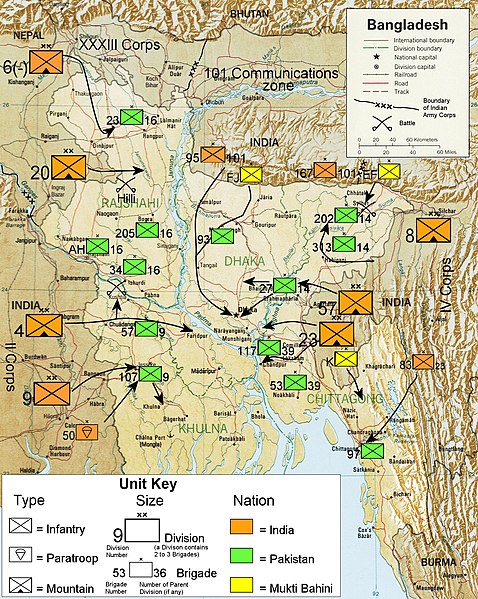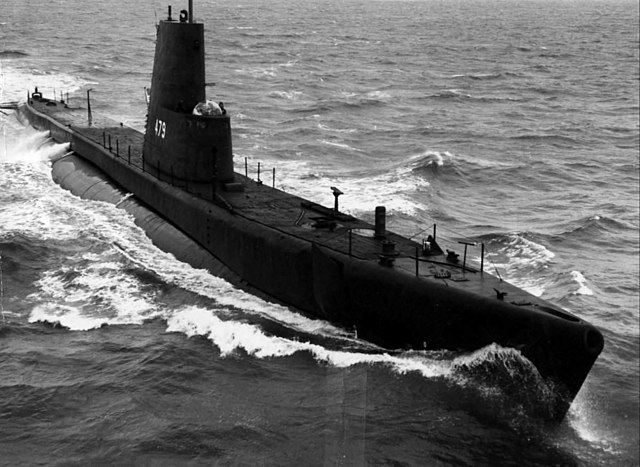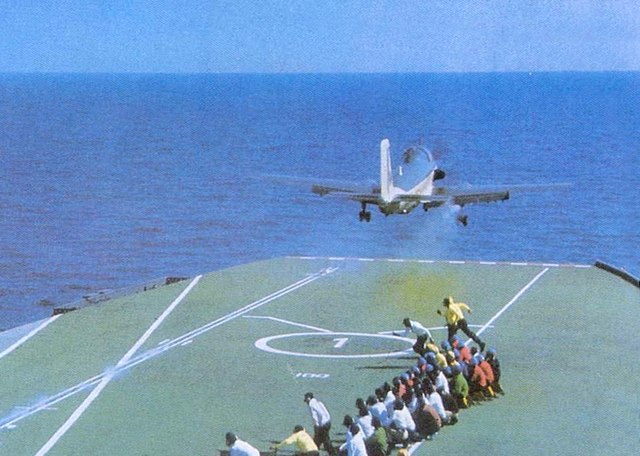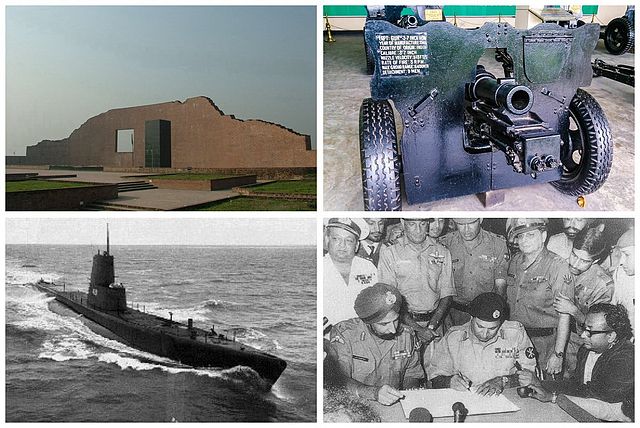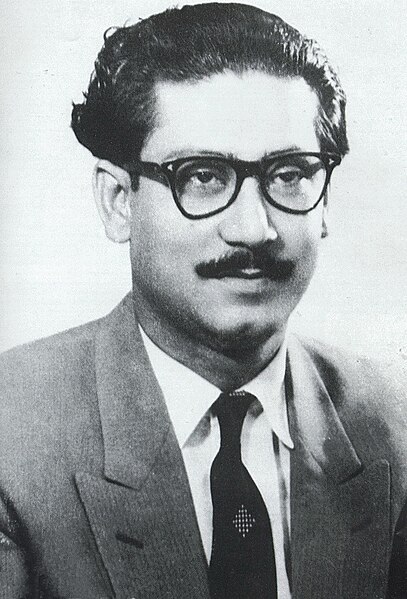Indo-Pakistani war of 1971
The Indo-Pakistani war of 1971, also known as the third India-Pakistan war, was a military confrontation between India and Pakistan that occurred during the Bangladesh Liberation War in East Pakistan from 3 December 1971 until the Pakistani capitulation in Dhaka on 16 December 1971. The war began with Pakistan's Operation Chengiz Khan, consisting of preemptive aerial strikes on eight Indian air stations. The strikes led to India declaring war on Pakistan, marking their entry into the war for East Pakistan's independence, on the side of Bengali nationalist forces. India's entry expanded the existing conflict with Indian and Pakistani forces engaging on both the eastern and western fronts. Thirteen days after the war started, India achieved a clear upper hand, and the Eastern Command of the Pakistan military signed the instrument of surrender on 16 December 1971 in Dhaka, marking the formation of East Pakistan as the new nation of Bangladesh. Approximately 93,000 Pakistani servicemen were taken prisoner by the Indian Army, which included 79,676 to 81,000 uniformed personnel of the Pakistan Armed Forces, including some Bengali soldiers who had remained loyal to Pakistan. The remaining 10,324 to 12,500 prisoners were civilians, either family members of the military personnel or collaborators (Razakars).

First row: Lt-Gen. A.A.K. Niazi, the Cdr. of Pakistani Eastern Comnd., signing the documented Instrument of Surrender in Dacca in the presence of Lt. Gen. Jagjit Singh Aurora (GOC-in-C of Indian Eastern Comnd.). Surojit Sen of All India Radio is seen holding a microphone on the right. Second row (left to right): Vice Adm. N. Krishnan (FOC-in-C Eastern Naval Comnd.), Air Mshl. H.C. Dewan, (AOC-in-C Eastern Air Comnd.), Lt Gen. Sagat Singh (Cdr. IV Corps), Maj Gen.
An illustration showing military units and troop movements during operations in the Eastern sector of the war.
Pakistan's PNS Ghazi sank off the fairway buoy of Visakhapatnam near the eastern coast of India, making it the first submarine casualty in the waters around the Indian subcontinent.
Indian aircraft carrier INS Vikrant launches an Alize aircraft
Bangladesh Liberation War
The Bangladesh Liberation War, also known as the Bangladesh War of Independence, or simply the Liberation War in Bangladesh, was a revolution and armed conflict sparked by the rise of the Bengali nationalist and self-determination movement in East Pakistan, which resulted in the independence of Bangladesh. The war began when the Pakistani military junta based in West Pakistan—under the orders of Yahya Khan—launched Operation Searchlight against the people of East Pakistan on the night of 25 March 1971, initiating the Bangladesh genocide.
Clockwise from top left: Martyred Intellectuals Memorial; Bangladesh Forces howitzer; Lt. Gen. Amir Niazi signs the Pakistani Instrument of Surrender to Indian forces in the presence of Lt. Gen. Jagjit Singh; and the PNS Ghazi
Language movement memorial
Sheikh Mujibur Rahman, the leader of East Pakistan, and later Bangladesh
Illustration showing military units and troop movements during the war


